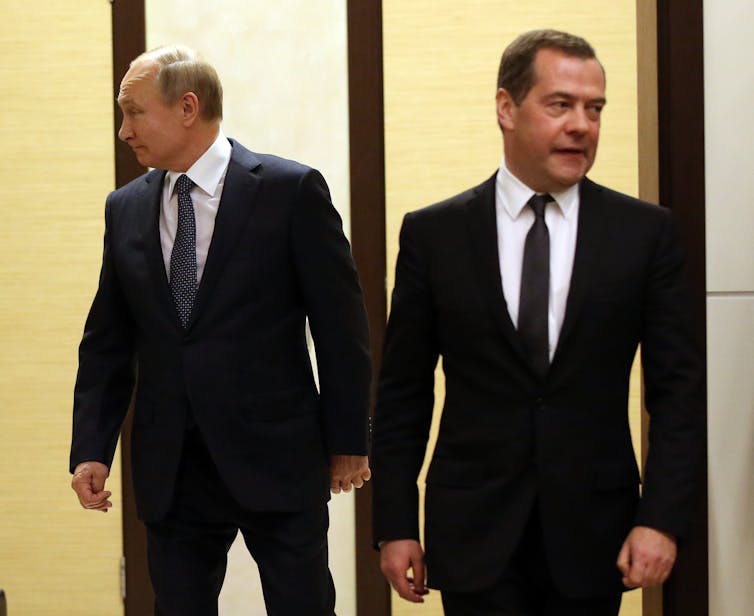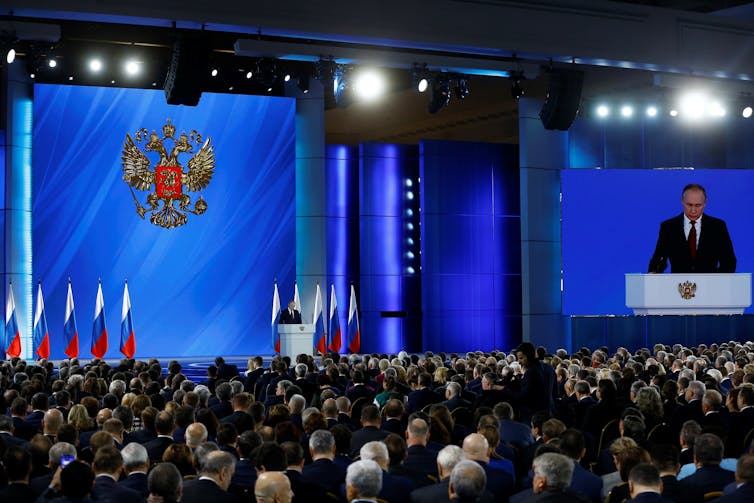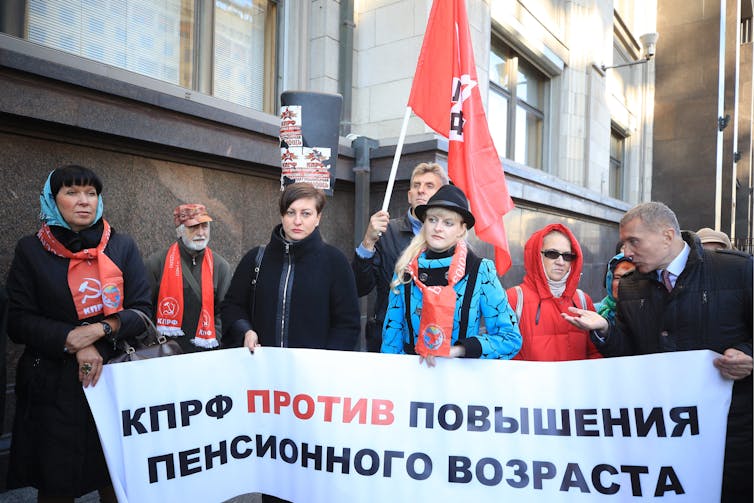
Experts in autocracies have pointed out that it is, unfortunately, easy to slip into normalizing the tyrant, hence it is important to hang on to outrage. These incidents which seem to call for the efforts of the Greek Furies (Erinyes) to come and deal with them will, I hope, help with that. As a reminder, though no one really knows how many there were supposed to be, the three names we have are Alecto, Megaera, and Tisiphone. These roughly translate as “unceasing,” “grudging,” and “vengeful destruction.”
I mentioned earlier this week that I had seen this as a headline, and that I had found it scary (an understatement). I gather that this is not something that has never been done before, but it has certainly not been on my radar before now, and here’s the thing: Orange Judas admires Putin – follows his lead – would most certainly do anything Putin directed him to do unless forcibly stopped from doing so. So I want to know more myself, and I don’t think it would hurt any of us to know more about what is going on.
=================================================================
Russia’s cabinet resigns and it’s all part of Putin’s plan

Mikhail Svetlov/Getty Images
Regina Smyth, Indiana University
Editor’s note: Russia’s prime minister, Dmitry A. Medvedev, and cabinet resigned on Jan. 15.
Russian politics are often not what they seem, especially to those in the West. We asked Regina Smyth, a Russia scholar at Indiana University, to help readers understand what’s going on.
1. What just happened?
Russian President Vladimir Putin, who has been in power for 20 years and faces term limits in 2024, has begun his effort to consolidate control and maintain his hold on power after the next elections. The cabinet and prime minister’s resignations are part of that effort.
Putin wants his majority in the parliament – the State Duma – to pass constitutional amendments that will allow him to remain in political control.
This move is not unexpected, at least among Kremlin watchers and scholars like me who have studied Russian elections over 30 years. Putin signaled the change in his annual press conference in December, where he spoke about the potential for constitutional reforms.
On Jan. 15, Putin gave his annual state of the nation address and unveiled “serious changes to the political system.” In response to the proposed constitutional amendments, which Putin is promoting as “reforms,” Prime Minister Medvedev and his government resigned.

Sefa Karacan/Anadolu Agency via Getty Images
This move should not be seen as protest, although it might be useful for Medvedev, a longtime ally of Putin’s, to feign independence and appear as if he made the move in dissent. He and Putin orchestrated similar actions in 2008 and again in 2011.
The goal of Putin and his allies is to forestall popular protest among those tired of Putin’s long reign.
Putin’s proposal to redefine the separation of power between the Duma, presidency and prime minister would allow parliament to select the prime minister, a power now in the hands of the president. Together with an agreement to impose strict two-term limits on future presidents, this change suggests that Putin will leave the presidency.
Future presidents would retain control of the security forces and the military but must consult the State Council.
The proposal is being touted in leading Russian newspapers as “democratic reform.” In fact, while appearing to redistribute power among the high-level players in the Kremlin, the details that will determine power relations remain vague.
On Monday, Putin’s spokesman stated that specifics will be developed in consultation with the Russian people. Given regime controls over voting and national campaigns, this nod to the people is a form of window dressing.
In making these changes and accepting the government’s resignation, President Putin is laying the groundwork for several paths to retain power, including as prime minister or head of a strengthened State Council, an advisory body to the president.
Putin’s proxies are already arguing that these reforms will prevent political crisis in 2024 and increase living standards.
2. Why did it happen?
President Putin faces two potential roadblocks if he wants to maintain political control through the next election cycle – parliamentary elections in 2021 and presidential elections in 2024.
The first problem is term limits that mandate he leave the presidency. In the face of growing urban protest and declining support for his regime’s policies, any political reforms that prolong Putin’s tenure are risky. Reform must be seen by the public as a step forward and not a step toward stagnation.
The second problem is that Putin and his United Russia party need to win large majorities in parliamentary and presidential elections. Russia’s sluggish economy and citizens’ frustration with poor government services will undermine support for regime candidates.
This plan, betting on the regime’s capacity to control elections, is risky. Outright electoral fraud will almost surely provoke protest.
Still, these so-called reforms are timed well before the election to allow Putin and his allies to rebuild support in the wake of any negative reaction. The Kremlin is preserving room to respond and correct course.
In accepting the government’s resignation, Putin blamed it for the country’s economic decline, and placed recovery and improved standards of living at the top of his political agenda.
3. What’s next?
Putin’s regime has successfully sold unpopular reforms to skeptical voters in the past. Earlier government attempts to promote pension and housing program changes provide a model for superficial responsiveness to popular demands.

Sergei Bobylev\TASS via Getty Images
To channel discontent Putin proposed a national referendum on the changes.
So Duma deputies will hold meetings in their districts. Party leaders will meet with constituents and hear their concerns. Officials will make amendments to the proposed changes that appear to address those concerns, but in ways that don’t fundamentally change their intent. The process will occur quickly to thwart any opposition organization.
The new prime minister will announce economic reforms and an infusion of state funds into the economy. These actions will also create an impression of responsiveness and win voter support.
As elections approach, the Kremlin will warn of potential crisis, offering Putin as the guarantor of stability. The message will be, as it has been in the past, that Putin is the bulwark against crisis.
4. What does this mean to the US?
While the Putin regime’s domestic policy is not popular, his ability to project Russian power abroad is. The U.S. can expect Putin to challenge its policies, as he has since the U.S. imposed sanctions on Russia for its invasion of eastern Ukraine.
I believe Putin will continue to meddle in U.S. politics and elections to prolong the country’s democratic crisis. This effort will serve both domestic and international agendas, by destabilizing the U.S. and making democracy look unappealing to ordinary Russians, who associate the dismal economic and political conflicts of the 1990s with Russian attempts at democratic reform.
The trajectory is clear in Russia’s newly revealed hack of the Ukrainian firm Burisma, where Joe Biden’s son Hunter served as a board member. This effort by Russia, presumably to unearth embarrassing information about the Biden family, is likely intended to inflame partisan tensions around the impeachment trial of President Donald Trump.
Distracting the U.S. with domestic strife also limits its capacity to challenge Russia abroad.
[ You’re smart and curious about the world. So are The Conversation’s authors and editors. You can get our highlights each weekend. ]![]()
Regina Smyth, Associate Professor of Political Science, Indiana University
This article is republished from The Conversation under a Creative Commons license. Read the original article.
=================================================================
AMT, certainly this qualifies as what some mystery writers call “a break in the pattern.” If you want to solve a mystery, you look at any deviation from “business as usual” in the life of everyone and anyone, because the chances are that there is some connection. Finding out exactly what the connection is another matter. I’m glad there are people who are knowledgable about Russia looking at it, and hope we will continue to be informed. I do like to be able to sleep at night.
The Furies and I will be back.
9 Responses to “Everyday Erinyes #201”
Sorry, the comment form is closed at this time.

I yi yi yi yi! Putin is well on his way to becoming a dictator.
Putin wants it all, and is teaching dt lessons in how to do this for himself, (and his cronies) in these United States.
Ethics, morals, respecting the law is down the tube w/Putin, with no rights or privileges for his citizens. Including his opportunities to bully them. And for him to do so to other countries to infiltrate and conquer.
Indeed. Very, very scary.
Great post, Joanne. Thx!
Great piece, JD, and I’m not at all surprised.
This has also been a Republican goal for this country for some time. Crawford Caligula, Fuhrer of the failed Fourth Reich, had similar plans. He was even refurbishing WWII POW camps for recalcitrant citizens. After Katrina and the Republican economic collapse, the Republican Reich knew they could not win, so they switched to a block and blame strategy.
You have to know that Impeached Fuhrer Trump* is looking at Putin’s plans and drooling with envy. Be sure that if he can steal the White House in 2020, he won’t be giving it up.
Thanks Joanne–I had noted this political event in a different article, which included much more on the history of keeping power in the past with the workaround of term limits using Medvedev as proxy in the office (term limits apparently permitted serving again after a break in service–will watch to see if the plan is to repeat this method or not).
Noted same entity in Burisma hack as of the DNC in 2016 election and have read reports of similar efforts with 2020 DEM primary campaigns already. There is a recommended security service where I read most candidates had chosen not to use.
Fearless Leader for life?
Despicable to see what pUtin has created with his criminal evil actions.
pUtin makes it very scary the way he takes care of things he doesn’t like or want,
How he can get away with it, makes it even scarier.
Sad that he will continue meddling in our country’s political.
Wish we could come up with solutions here to end all of it from happening.
Great post, Joanne Thanks
Very informative, but there is no surprise, here, understanding that Putin is a manipulative master. I expect most of the Russian people to quietly go along, perhaps for a variety of reasons.
As noted by others: Very frightening … but not the least surprising.
I can just see *Rump now begging on his next phone call to Putin: “Me, too, Vladdy! I want to be a dictator just like you!”
When I saw the first headlines on the Russian PM and his cabinet resigning I had this very brief moment of hope. But then it soon became clear that this was the usual sham in which the public is fooled into thinking this is about political reform and not more power-grabbing by a potentate in spe.
This move by the cabinet shows that in most modern countries a potentate can’t come to full bloom unless there is a (violent) coup or a government that backs that dictator by controlling the polls, the media and jurisdiction. It may, therefore not only be Trump who sees this latest Russian powerplay as something worth copying but the government and the GOP may see this as an example of opportunity too. With a Mitch McConnell who changes the laws of the Senate whenever it suits him and his masters, Trump has a lot going for him already.